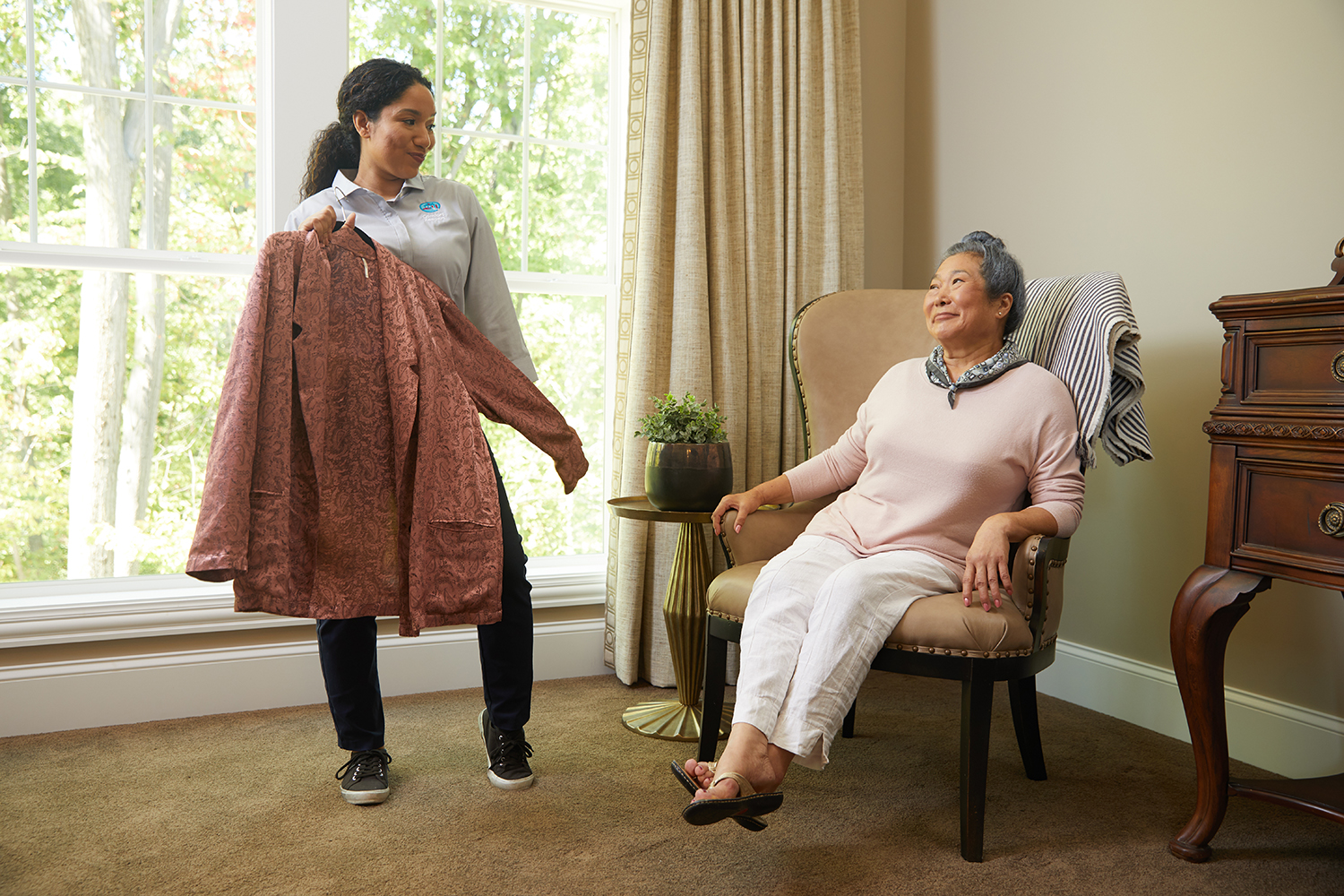Settling into having a caregiver in your home
Tips to adjust to someone new spending substantial time in your personal space
Entering into an agreement with an in-home senior care partner to provide care for yourself or a loved one is a major decision. There are emotional and financial considerations, not to mention the added dynamic of someone new now spending substantial time in your home.
Settling into having a caregiver in your home a few days each week can stir up certain feelings about a loss of control or an encroachment on personal space, but there are a few consistencies we have seen over time that can help you settle into service.
- Getting up to speed. During the first few shifts a new caregiver will learn your routines and preferences, get acclimated to your home, and get to know the personalities of individuals, and pets, in the home. It’s important that a caregiver learn how you like things done in your home, and in doing so they may ask more questions early on to get up to speed and into a good rhythm. Allow for these extra questions early on to help them learn your preferences and gain independence. This is temporary.
- You are not a host. It’s not uncommon in the first few shifts that an individual receiving care feels overwhelmed or exhausted because they want to keep their caregiver busy and is compelled to show them where everything is located and how to do things. A new caregiver will be well briefed and trained on the services they are to provide, and without much effort can track down cleaning supplies, food items, and other things in your home. While it’s important to engage in care as much as comfortable doing so, resist the temptation to ‘host’ and allow yourself to relish in the service.
- It’s OK to set boundaries. A caregiver is a guest in your home. If there are rooms or items in your home that are private, or there are periods in the day when you prefer quiet time, you can set and maintain those and other boundaries. These preferences can be communicated directly to your caregiver, or to your in-home care agency partner office. A caregiver never wants to be intrusive, and early on may not immediately know what boundaries are most important to you.
- Do your best to articulate your expectations. Some older adults appreciate a caregiver who quietly comes into their home, rolls up their sleeves and begins the shift, while others enjoy a caregiver who eases into the shift by first spending some time to talk about the day and delight in companionship. Some prefer a caregiver who will anticipate what needs to be done and will independently complete tasks without direction, while others appreciate being involved in the plan for the day. Do not wait to articulate what type of caregiver experience is important to you.
Comfort Keepers can help set you up for success
Whether an in-home caregiver is a welcome addition for you or a loved one, or received reluctantly out of a medical necessity, it remains that someone new in your personal space can take some adjustment. The above tips, as we have seen, can help hasten a more enjoyable experience; further, at Comfort Keepers we work hard up front to make the best caregiver match possible.
To learn about in-home care with Comfort Keepers call our client care team directly at (651) 796-2540.
 Settling into having a new caregiver in your home a few days each week can be an adjustment, but in no time Comfort Keepers can help you settle into service.
Settling into having a new caregiver in your home a few days each week can be an adjustment, but in no time Comfort Keepers can help you settle into service.







